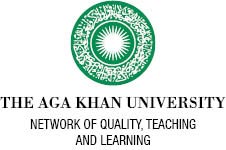External Peer Review Process
Introduction
After a programme/entity has completed their self-assessment process and produced a full SAR that has been reviewed by the Quality Assurance Review Committee (QARC), they will recommend to the Provost it proceed to the next step of the Quality Assurance process: conducting an external peer review.
What is it?
The site visit is conducted by the Provost-appointed external reviewers following the Academic Quality Framework. Once completed, the Peer Assessment Report (PAR) is developed by the appointed external peer review team following the AKU Academic Quality Framework. The document assesses the accuracy of the SAR, points out the strengths and weaknesses of a programme and gives recommendations for improvement in each of the 7 themes and/or 18 cells of quality.
How does it work?
The external review team will:
Check the outcomes of the self-assessment
Reflect on the self-assessment
Engage in dialogue and discussion with staff and students
Produce a peer assessment report (PAR) that might be made public or remain confidential.
Along with the PAR, the programme must create an improvement plan that details the best practices as well as the recommendations for improvement by external reviewers, the actions they will take to reach those recommended objectives, and how they will evaluate their progress. Every year they will present the annual tracking of their improvement plan to QARC to gauge and assess the improvements being made.
Benefits
Why is peer review important?
An outsider’s view of the performance is needed. Outsiders can find it much easier to objectively spot a programme’s weaknesses and strengths.
An external assessment by an expert team is an additional instrument, to learn more about the quality.
It gives authority and validity to the findings of the SAR and contributes to the recognition and acceptance of the programme.
It delivers confidence to stakeholders, provides evidence of quality to the public, and shows that the standards agreed upon by the competent authorities are being implemented.
It provides mechanisms and suggestions for continuous quality improvement.
External assessment also provides opportunities for accessing funding for research and instruction.
Participation
The review team usually consists of 3 members who have no conflict of interest, two of whom are external to the university, and one of whom is external to the programme but internal to the entity. The team members are nominated by the programme director or Dean and appointed by the Provost.
Duration:
The site visit usually takes about three days, concluding with an oral presentation to the faculty board summarizing the reviewers’ findings. The report itself is then prepared by the reviewers within 6 weeks of the visit. 6 months after completing the PAR, the entity will submit the Improvement Plan to QARC.
The following is table shows all AKU entities/programmes that have gone through (or are currently going through) the PAR exercise:
| School of Nursing and Midwifery, Tanzania | Bachelor of Science (Post-RN BScN) | Complete
|
|---|
| School of Nursing and Midwifery, Kenya | Bachelor of Science (Post-RN BScN) | Complete |
|---|
| School of Nursing and Midwifery, Uganda | Bachelor of Science (Post-RN BScN) | Complete |
|---|
School of Nursing and Midwifery, Pakistan | Bachelor of Science in Nursing (BScN) | Complete |
|---|
| Bachelor of Science (Post-RN BScN) | Complete |
| Bachelor of Science in Midwifery Complete (Post-RM BScM) | Complete |
| Master of Science in Nursing | Complete |
Medical College, East Africa
| Post Graduate Medical Education- specialty in Obstetrics and Gynecology, AKU Health Sciences
| Complete |
| Post Graduate Medical Education-specialty in Pediatrics and Child Health | Complete |
Medical College, Pakistan
| Master of Health Professions Education (MHPE) | Complete |
Master of Science (Health Policy & Management)
| Complete |
Master of Science (Epidemiology & Biostatistics)
| Complete |
| Institute for Educational Development, East Africa | Master of Education | Complete |
Institute for Educational Development, Pakistan
| Master of Education | Complete |
| Master of Philosophy | Complete
|
Testimonials:
“It has been invaluable to have a peer reviewer on the team who is internal to AKU but external to the department. They have shared contextual lessons from their own experiences at AKU and taken away good practices from the reviews to improve their own programmes.”
(PGME Kenya 2016)
“The QA review process provides a ‘reflective’ opportunity to the entity to deal with ‘difficult’ questions to improve the quality of a programme.” (Programme Director, IED East Africa 2018)
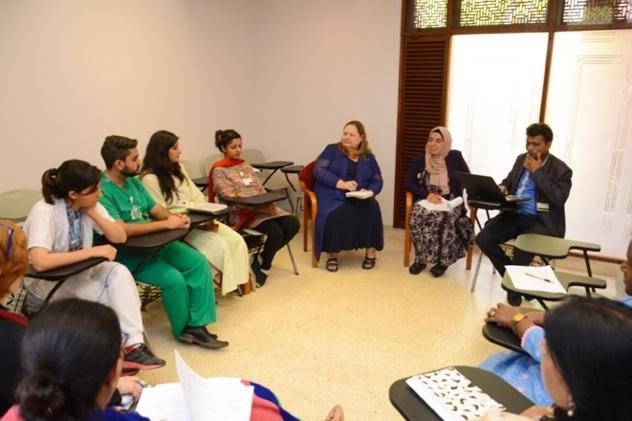
External peer reviewers meet with SONAM Pakistan students (2017)
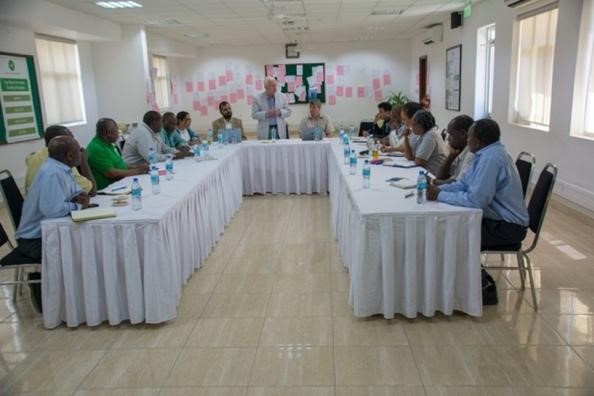
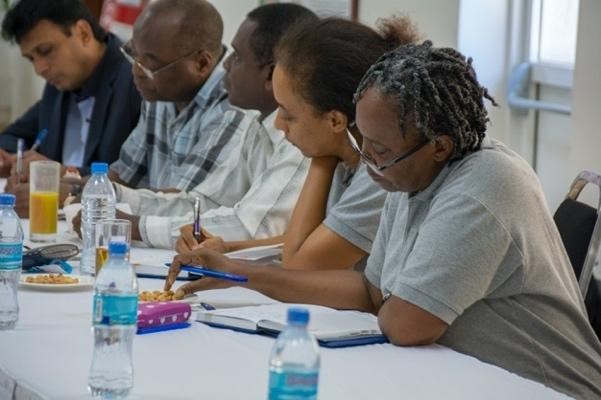
IED East Africa external peer review team meeting (2018)
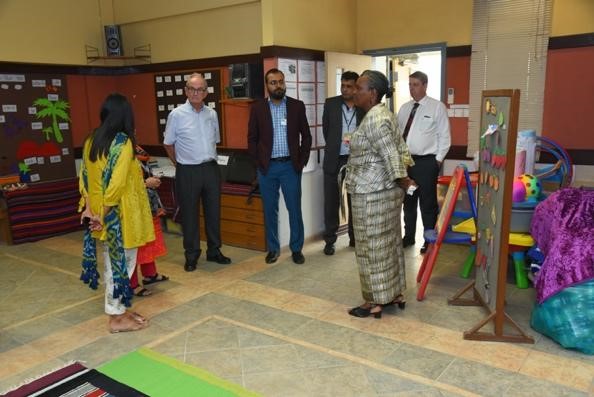
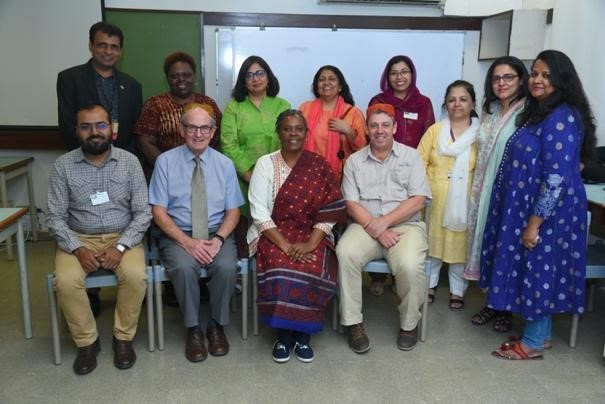
IED Pakistan external peer review team site visit (2019)
Resources:
For the guidance sheet, qualifications for external peer review and other helpful links, check out our Tools for Programme Review at AKU in the Resources section.


